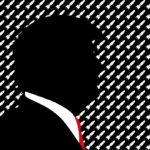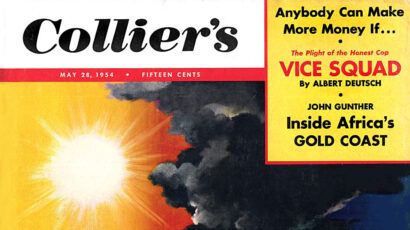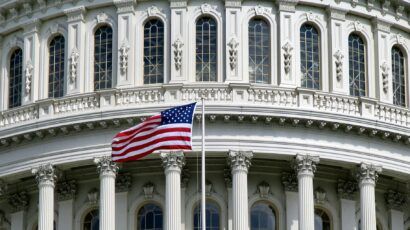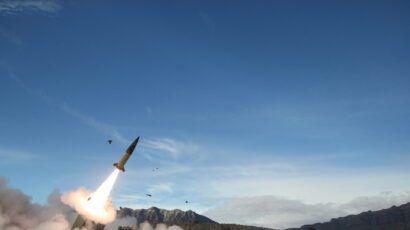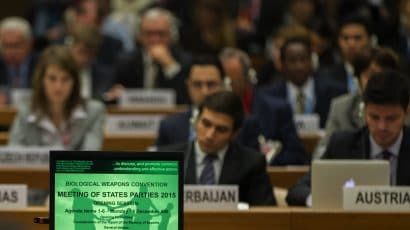Trump’s trade policy may deflate his “maximum pressure” campaigns
By Aaron Arnold | June 10, 2019
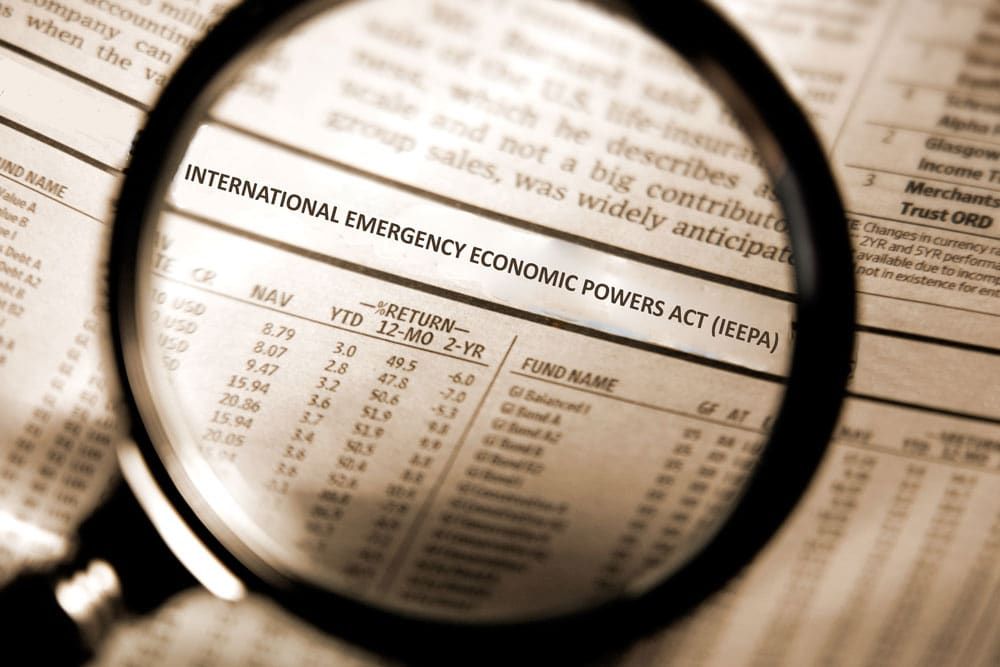 The International Emergency Economic Powers Act, or IEEPA, gives the president sweeping powers to restrict trade and commerce for reasons of threats to national security—which usually are WMD proliferators, terrorist organizations, narco-traffickers, and human rights abusers.
The International Emergency Economic Powers Act, or IEEPA, gives the president sweeping powers to restrict trade and commerce for reasons of threats to national security—which usually are WMD proliferators, terrorist organizations, narco-traffickers, and human rights abusers.
Last week, President Trump tweet-threatened Mexico with steep tariffs over what the Administration perceives as an “illegal immigration crisis” raging on the southern border. In effect, Trump threatened to upend a $1.2 trillion trade deal between the United States, Mexico, and Canada in exchange for what amounts to a promise by Mexico to deploy around 6,000 of its national guard troops to keep out illegal aliens.
By the week’s end, the President backed-off his threats, claiming a quick victory with Mexico and tweeting, “…The Tariffs scheduled to be implemented by the U.S. on Monday, against Mexico, are hereby indefinitely suspended.”
Although Trump did not outline his legal basis for imposing the tariffs, several analysts anticipated that he was seeking to use the authorities granted him under the International Emergency Economic Powers Act—the legal basis that presidents rely on to impose financial and economic sanctions against WMD proliferators, terrorist organizations, narco-traffickers, and human rights abusers. Mixing trade and immigration policy under the guise of a national security threat, however, may end up deflating Trump’s “maximum pressure” sanctions campaigns against Iran and North Korea.
What is a national security threat? The International Emergency Economic Powers Act—IEEPA—gives the president sweeping powers to restrict trade and commerce for reasons of national security. The president needs merely to declare some existential threat to the United States before imposing trade restrictions by fiat.
What constitutes a national security threat, however, is anyone’s guess. The legislation’s language is vague. The terms “unusual and extraordinary” provide no concrete answers and plenty of room for interpretation.
In 1977, when Congress enacted IEEPA, the goal was to reign in the excessive use of national security declarations by the Executive Branch. In 1970, for example, President Richard Nixon declared a postal workers’ strike was a national emergency, which allowed Nixon to use the National Guard to deliver mail. After the strike ended, Nixon kept the declaration in place, prompting some in Congress to question whether presidents were abusing their national security authority.
Since 2001, Presidents Bush, Obama, and Trump have increasingly relied on IEEPA authorities to impose sanctions, in every imaginable flavor, against America’s adversaries. Many of these sanctions were part of the these administrations’ “maximum pressure” campaigns, threatening so-calledsecondary sanctions—penalties against third-party countries that do business with Iran and North Korea—rely on IEEPA.
A problem emerges, however, when the lines between national security policy and trade policy begin to blur. Take the recent case of Huawei—one of China’s largest telecommunications companies. Last year, Canadian authorities arrested an executive at Huawei at the request of US law enforcement. While the Justice Department claimed that Meng Wanzhou was responsible for violating Iranian and North Korean sanctions, Beijing quickly linked the incident to ongoing trade talks, taking swift reciprocal action by arresting a Canadian citizen in China. To make matters worse, after Weng’s arrest, National Security Advisor John Bolton claimed that although he was aware of the investigation and pending arrest, he did not inform President Trump. One might be forgiven for thinking that Bolton’s actions were intentional—meant to appear as if Weng was a bargaining chip in trade talks.
Actions such as the case against Huawei and threats against Mexico give the impression that Trump is using the presidency’s national security powers to achieve political aims, which ultimately undermines the legitimacy of US’ sanctions power. At some point, Trump will begin to see his “maximum pressure” start to deflate as companies turn away from US financial and economic markets.
Will Mexico be the tipping point? Trump’s reliance on IEEPA authorities to threaten tariffs against Mexico, coming on the heels of trade negotiations, is causing some Republicans in Congress heartburn. Tensions with China are already hitting everyday Americans in the wallet. European companies are increasingly impatient with the balancing act needed to comply with American sanctions against Iran. Not only is the Trump Administration undermining its credibility, but it may also be undermining broader foreign policy objectives. Lack of coordination and poor signaling may diminish other countries’ political will to fully implement UN sanctions regimes and export controls to prevent the spread of weapons of mass destruction.
What can Congress do? Congress can move to block Trump’s tariffs against Mexico. Of course, this would require the necessary votes, which is unlikely in the Senate. Another option is to make substantive changes to IEEPA. Limiting the scope of how a president can use IEEPA would prevent superfluous national security declarations that fail to meet an adequate bar. However, it is equally unlikely that Trump would sign legislation knee-capping some of his most prized powers.
While this episode of poor economic statecraft may sow the seeds for an eventual change in the next administration, in the near future it will ultimately become important for Trump to rein in the wild signaling that grossly blurs national security policy with trade policy. The short-term reality is that if President Trump does not find a way to square his sanctions’ objectives with his trade policy, he could soon find himself unable to achieve either.
Together, we make the world safer.
The Bulletin elevates expert voices above the noise. But as an independent nonprofit organization, our operations depend on the support of readers like you. Help us continue to deliver quality journalism that holds leaders accountable. Your support of our work at any level is important. In return, we promise our coverage will be understandable, influential, vigilant, solution-oriented, and fair-minded. Together we can make a difference.
Keywords: Iran, North Korea, foreign policy, sanctions
Topics: Analysis, Nuclear Risk







